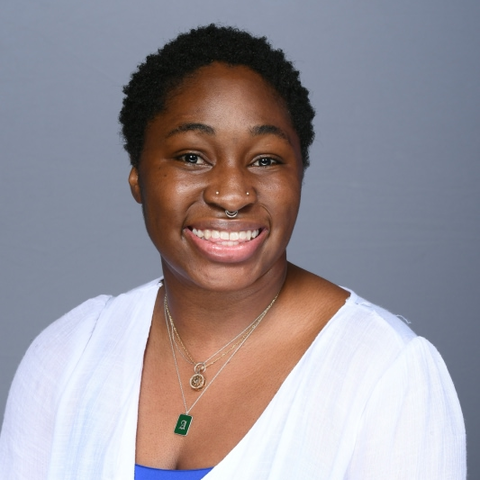Section Branding
Header Content
Guaranteed income effort in Atlanta's Old Fourth Ward enrolls its first group
Primary Content
Supporting women helps create an economy that’s more equitable for the entire community.
That’s the idea behind the In Her Hands guaranteed income program, an Atlanta-based organization that helps Black women support themselves during periods of financial insecurity.
In Her Hands offers no-strings-attached payments averaging about $850 a month for two years to Black women who are accepted in the program. To qualify, the women must be 18 years or older, live within the Old Fourth Ward, and make at or below 200% of the federal poverty line. That means less than $56,000 a year for a family of four.
Hope Wollensack is the director of the Georgia Resilience and Opportunity Fund which funds In Her Hands.
She said they limited the program to Black women on purpose.
“In most cases in our economy, that's been Black women whose labor is both undervalued or unvalued in many ways," Wollensack said.
"And so if we start with black women, we're creating an economy that can work for everyone,” she said.
Felicia (whose last name was withheld for privacy reasons) is one of the first participants from Atlanta’s Old Fourth Ward, a now-gentrified area that borders the Sweet Auburn Historic District and the birthplace of Martin Luther King Jr.
She’s a mother of 10 and has been living in the neighborhood for 12 years. She works as a private nurse, and helps people find housing in her spare time. Felicia said she’s looking at the money she receives from the In Her Hands program as a way to lift up others in the community.
“[With the funding], I can help keep a roof over somebody's head for a night,” she said. “Because many a time that me and my family went through that, somebody always reached out and helped us. That's why I do what I do. We're making sure some people have a place to stay, even if it's just that one night to call it a home.”
The program is divided into two test groups. Participants in one group will receive payments of $850 for 24 months and the other will get an initial payment of $4,300 and then $700 a month for 23 months.
In Her Hands also connects participants to a variety of resources around job searching, mental health, and education.
Felicia said, in her experience, empowerment is a valuable resource, too.
“They do go out to get assistance and don't know what to say or how to bring about what they need,” she said. “Sometimes you can find out what you need to know and just don't have the information or the proper communication or the proper information to handle the situation”
Enrollment officers such as Kym White are there to make sure participants have all the support they need to access the resources In Her Hands offers, and to address any doubts they have about the program.
“This program is unconditional," White said. "We'll never come back and ask them for anything because most things are hard. TANF is hard to get. Food stamps are hard to get. Day care, everything is hard to get, so I just try to make it easy and smooth.”
She said in her experience with government aid, applicants can be made to feel like a burden and it can discourage people from applying.
White said her enrollees won’t feel challenged.
“This is not our money," she said. "This money was raised to help these women, so I want to give it to you. I don't want to make it hard for you to receive something that was intended for you."
Wollensack said In Her Hands is not going to replace government aid. Instead, the program fills the gap created by traditional charities and government programs, which she said are limited.
“And mostly because [they're] built on a system of ‘We don't really trust folks to make the best decisions for themselves,’” Wollensack said.
Cash payments grant participants flexibility to cover expenses in their life as they see fit.
Similar programs are popping up in major cities across the U.S., but In Her Hands will be one of the few and potentially first guaranteed income programs to focus outside metro areas.
Applications are now open to residents in Southwest Georgia’s Clay, Randolph, and Terrell counties, with a third region to come.


